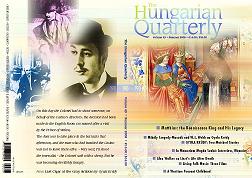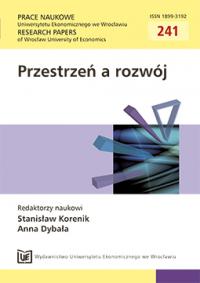
Gyula Krúdy’s Visions of Unexpected Death
Gyula Krúdy’s Visions of Unexpected Death
Keywords: Gyula Krúdy; Hungarian literature
More...
Keywords: Gyula Krúdy; Hungarian literature
More...
Endre Karátson: Otthonok (Homes), 2 vols. Jelenkor Kiadó, Pécs, 2007, 312 & 329 pp. • Gábor Vida: Nem szabad és nem királyi (Unfree and Unroyal). Budapest, Magvetô, 2007, 316 pp. • Dezsô Tandori: A komplett tandori—komplett eZ? (A complete tandori—completely nutZ?). Budapest, Palatinus Kiadó, 202 pp.
More...

Keywords: John Hunyadi and his sons László and Matthias; victory at Belgrade; Sultan Mehmed II
The three Hunyadis, John Hunyadi and his sons László and Matthias, rose from the anonymous lesser nobility to become the most significant political figures of Hungary in the second half of the 15th century. The past two years have abounded in anniversaries connected to their lives. June 6, 2006 was 560 years to the day that the Diet meeting in Pest elected John Hunyadi, Voivode of Transylvania, to act as regent for the boy king Ladislas V (1440–1457). On July 22, 1456, John Hunyadi won a decisive victory at Belgrade over the armies of Sultan Mehmed II. Hunyadi’s feat—carried out with a small standing army combined with peasants rallied to fight the infidel by the Franciscan friar St John of Capistrano— had the effect of putting an end to Ottoman attempts on Hungary and Western Europe for the next seventy years, and is considered to have been one of the most momentous victories in Hungarian military history. The bells ringing at noon throughout Christendom are, to this day, a daily commemoration of John Hunyadi’s victory. The year 2006 saw historians observe the 550th anniversary of that event as well with an international conference and an exhibition.
More...

This essay grew out of a lecture assignment at Wayne State University, Detroit, Michigan. When I first contemplated the topic, I searched high and low, but could not locate a copy of Gyula Illyés’ Puszták népe (People of the Puszta), first published in 1936, which described a community similar to the one in which I grew up, located not far from mine. Thus I proceeded to write the lecture on my own. Years later, when I managed to get a copy of Illyés’ book, as I expected, some overlap between my essay and his became apparent, in spite of the fact that he describes a peasant community during the First World War and after, and my recollections cover the years of the Second World War. This overlap, I believe, reflects more than just the fact that I read Illyés’ book during my youth in Hungary. It also bespeaks the tenacity of a lifestyle, in this case not only because of traditional peasant resistance to change, but also because of the conservative, reactionary nature of the political regime in Hungary. The folk song I have quoted appears in Illyés’ volume with only three stanzas, while my memory dredged up an additional stanza, rebellious and defiant. A sign of times to come. “Uncle Gyula”, the best-loved poet and spiritual father to my generation of Hungarian peasant intellectuals, closed his essay with a dedication to those who will continue reporting the fate of our people, the people of the puszta. And I dedicate this update to his memory. His essay, by the way, has appeared in French, German, Chinese and English translations, the latter in 1967, from Corvina Press of Budapest.
More...
Bob Dent: Budapest: A Cultural and Literary History. Cities of the Imagination series. Foreword by George Szirtes, with thirty black and white drawings. Signal Books, Oxford, 2007, 237 pp.
More...
Richard Strauss: Elektra • Shakespeare: Macbeth • Péter Esterházy: Rubens és a nemeuklideszi asszonyok (Rubens and Non-Euclidean Women)
More...
Gyula Krúdy: Ladies Day (Asszonyságok díja), translated by John Batki. Budapest, Corvina Press, 2007, 190 pp.
More...
Keywords: local development; quality of life; municipalities in Łódzkie Voivodeship
The author focuses on the quality of life. She also describes the citizens’ and local government opinion about this issue. Apart from theoretical aspects the article includes the results of research which was conducted in the communes in Łódzkie Voivodeship. The research proved that opinions mentioned above are different.
More...
Keywords: economic region; factors and barriers of development; new economy
Economic regions in the early twenty-first century found themselves in an entirely new situation in which stability is becoming a rare phenomenon. To effectively influence their development not only possible factors and barriers of this development should be taken into account but also the contemporary conditions of functioning of these regions.
More...
Keywords: etatism; Turkey; central planning
Emphasising the state’s role in the creation of the development climate and in the lessening the development disparities in spatial terms, etatism had been the basic ideology of economic development until the neoliberal policy shift in the 1980s in Turkey. Various institutions played roles in this statist economic development process in Turkey since the 1930s. While some of these institutions were the main actors of state capitalism, some of them took charge in the achievement of nationwide socio-economic development like the State Planning Organisation (SPO). The SPO founded in the planned era (1960-1980) of Turkish macroeconomic policy fulfilled important tasks in central planning of socio-economic development in accordance with the principle of etatism. In both descriptive and critical ways, this paper briefly analyses the statist content of the socio-economic development approach in Turkey in particular to the role of the SPO in centrally planned development.
More...
Keywords: creative economy; cultural sector; economization of culture; revitalization
Nowadays, there is more and more points to the new paradigm of urban development based on the creative economy, which combines economy and culture. The article presents the relationship between creative industries and the economy and their impact on the development of the city and its community. It also presents tools to promote the development of the creative sectors in the cities.
More...
Keywords: local self-government; space; social and economic development
Alongside with forming the economy based on knowledge and with intensifying globalization as well as changes of paradigm of economic development, we can also observe changes in space. These changes appear in the growth of part and the position of council powers. The existing economic, institutional, technological and social net in local, regional, national as well as international dimension creates new phenomena and frames for common actions. As a result of these complex processes a new subject of spatial policy appears, i.e. local self-government. The article tries to show the changes which occurred in the local self-government both in Poland and in chosen European Union countries. Its new role as a subject of spatial policy is presented. Consequently the existing, important systemic differences on the territories of individual states of the European Union are expressed.
More...
Keywords: economic situation; public authorities; economic crisis
The paper presents possibilities of using economic mechanisms for creating an economic situation using the public authorities and limited state intervention in the market economy, in particular by introducing appropriate management and law and the introduction of the stakeholders in the governing of the company as part of the corporate governance and codes of good practice. On the example of statistical data in Poland and abroad the article presents changes in the economy associated with creating economic growth through state authorities after the economic crisis in 2008 and 2009. The article shows success, and further possible risks of these activities, with particular emphasis on stakeholders in the form of local and national authorities, and workers and trade unions in the board of the company within the framework of corporate governance of stakeholders in the management of a company. The necessity of building the economic regulations and institutional economy for the assurance of economic stability are presented as well.
More...
Keywords: local and regional government; metropolitan areas; finance of local and regional government
Recent years show a significant change in the functioning and development of cities and associated metropolitan areas in Poland. Particularly significant changes in the conditions on the functioning of urban areas concern the largest cities, which are distinguished by their size and are a kind of growth poles in different regions. The scope of tasks performed by local governments increase as well, but in particular, this process also applies to large cities and geographically related local government units, thus creating metropolitan areas.
More...
Keywords: local governance; sustainable development; capacity building; institutional capital; institutional governance
In this paper, some factors influencing local governance’s capacity to direct its own development are discussed. This capacity is weakened by globalization processes and weakening of the nation state. It creates opportunities for powerful global stakeholders to force their economic interests, which poses a threat to sustainable development. It is argued that large urban areas, integrated in the global economy, with a high level of institutional capital as well as economic and political power, are most likely to be able to influence their own development path. However, strong self-organization may empower less developed areas. In this context, the importance of multilevel governance is discussed.
More...
Keywords: health protection; health service; the National Health Fund
The National Health Fund is the main subject being responsible for providing medical services in Poland. It is actually a monopoly on the market due to the lack of common, additional health insurance. The article presents its main tasks as a unit responsible for providing such a kind of services in our country.
More...
Keywords: task of the state; von Hayek economy
The article discusses the views of F.A. Hayek on the tasks of the state and its possible interference with the market economy. The author pays attention that Hayek, as a consistent supporter of the rule of law, saw no problem in the activities of the state in the economic field but in the resulting the most often unequal treatment of entities (favoring public entities). The text also discusses the views about the tasks of the state against which Hayek’s views appear to be moderate.
More...
Keywords: information quality; public information; Internet; labour market; decision process
Information that is produced and disseminated by public sector organizations can be described as public information. Today it is web information as well. The state should create an opportunity to shape the knowledge of the socioeconomic reality through the access to reliable information concerning the state activities, including the current state policy and present situation on the labour market. Solid knowledge makes it easier for citizens to make rational market decisions. The paper attempts to demonstrate the relationship between the quality of public information about the labour market and the capacity to discern the situation of today’s labour market in order to minimize the risk of decision making by entities of the employment sphere.
More...